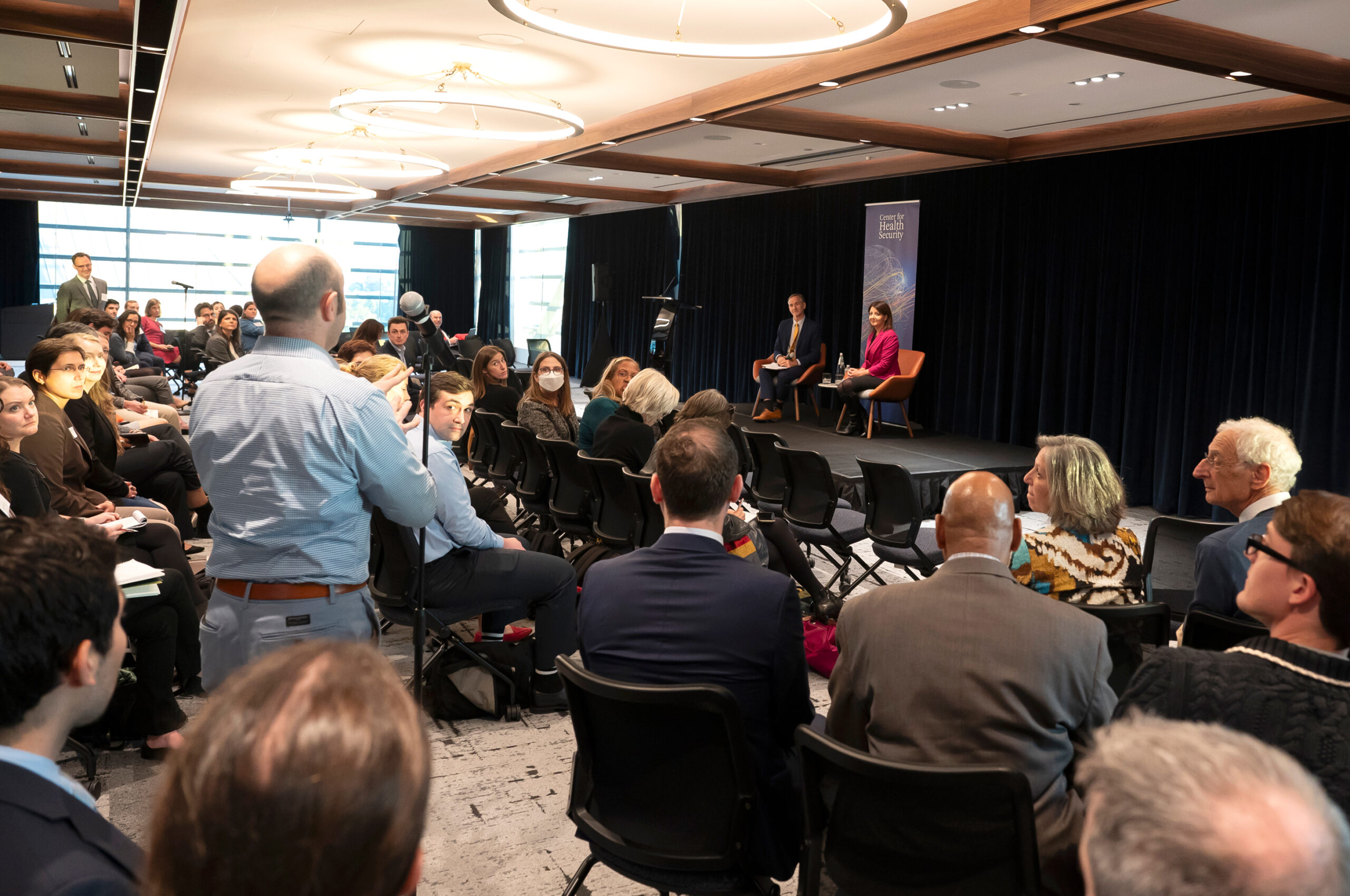Director Mandy Cohen on three ways the pandemic has changed the CDC
The agency is communicating with more urgency, even as it gathers information, and working to develop reliable tests more quickly

Mandy Cohen was sworn in as the 20th director of the Centers for Disease Control and Prevention during the summer of 2023 after Rochelle Walensky, who led the agency during the peak of the COVID-19 pandemic, retired.
Cohen led North Carolina’s pandemic response effort, in her position at the state’s Department of Health and Human Services. She also served as chief operating officer and chief of staff of the Centers for Medicare and Medicaid Services and worked in the private sector.
From her position at the CDC, Cohen has seen first-hand how the agency has changed in response to lessons learned during the COVID-19 pandemic. She shared her insights at a recent event at the Johns Hopkins University Bloomberg Center:
- Communicating rapidly and clearly.
In the past, Cohen said, the CDC wanted to wait to share updates until it felt like it had gathered all the relevant information. Now, the agency is trying to provide piecemeal updates as it studies an issue.
She pointed to the way the CDC communicated about the COVID-19 2.86 variant as evidence of the transformation.
“What you saw us do within days of identifying [the strain] was communicating with the public to say ‘This is what we know. This is what we don’t know. And here’s what we’re working on and we’re going to be back to tell you more,’” she said.
2. Making public health a “team sport.”
Cohen spoke about the importance of the government, academia, and private sector working together to advance public health.
“Protecting health is a team sport,” she said. “We really need to be thinking collectively about the health delivery system and public health.”
For example, to encourage parents to give their babies the new RSV vaccine, the CDC partnered with the American Medical Association, the American Academy of Pediatrics, and the Centers for Medicare and Medicaid Services to develop a billing code for both the vaccine administration and counseling for it.
“We can’t just recommend a vaccine and sort of assume that our job is done,” Cohen said. “It’s to really make sure we’re following through all the steps of the process.”
3. Improving laboratory tests.
Early in the pandemic, the CDC struggled to produce an accurate and reliable COVID-19 test. In response, the agency, then led by Walensky, restructured the lab and put in new quality control checks to prevent a similar issue in the future.
“We can never be in a position where we can’t test people for a disease when it’s all across the country,” she said.
The rollout of monkeypox tests, which brought together the public and private sector, could serve as a model going forward, Cohen said.
The event was organized and hosted by the Johns Hopkins Center for Health Security; the center’s director, Tom Inglesby, who recently served as senior adviser for testing on the White House COVID-19 Response Team, moderated the conversation.
.